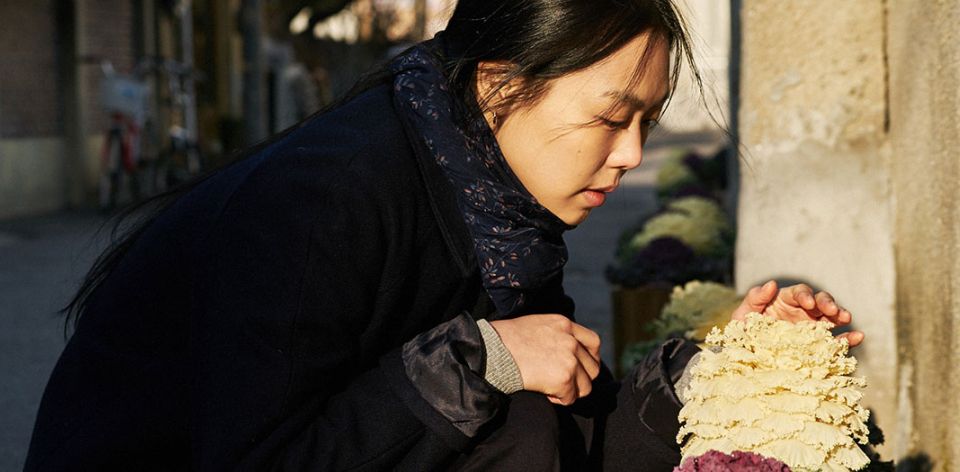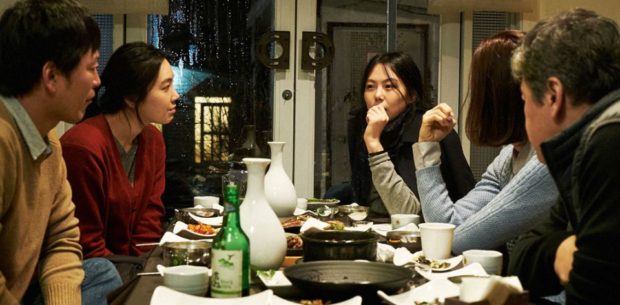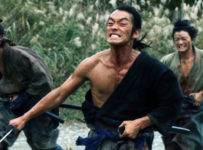It would be unkind to say that Hong Sang-soo has been making the same film for the last few decades, although the release this year of ON THE BEACH AT NIGHT ALONE, Claire’s Camera, and The Day After certainly highlight the filmmaker’s thematic strengths. Here we have another conversation-based view of Hong’s outer circles, but with an unabashedly romantic viewpoint.
Actor Young-hee (Kim Min-hee) has wound up on the fringes of the Korean film industry after her well-reported affair with a director. Holed up in what appears to be Hamburg with a friend, her growing agitation with her situation begins to exhibit in drunken outbursts and frustration. Through a series of conversations with friends, she slowly works up to a confrontation with her former lover.
In a case of art imitating life, Hong’s script clearly draws from his own highly publicised affair with Kim Min-hee and the media crucifixion she received as a result. It’s broadly a commentary on the double-standards for men and women in these situations, and rebuttal of the notion it effects a man’s career more somehow. It’s also Hong purging himself of regrets, using proxies to unashamedly double-down on his belief in a crazy little thing called love. That in itself is refreshing.
Even using his familiar style, basing much of the narrative around intimate dinner table conversations, Hong manages to extract some of his most pointed observations to date. At times it is funny, at other sexy, or simply uncomfortable as Young-hee gets increasingly drunk. Non sequiturs, including a man in a knitted beanie washing windows, comments on the fishbowl aspects to living a public life.
Yet there are also some of the most emotionally raw and laser focused scenes in one of Hong’s film’s to date, wrapped around the formidable talents of Kim Min-hee. Here she plays a character who prides herself on her directness, but is perpetually frustrated by the conversation everybody wants to have but tiptoes around without confronting their own complicity in her professional exile.
“Personal stories are boring,” accuses Young-hee in her final confrontation. “It’s boring to talk about yourself all the time.” The most pointed and inwardly facing piece of dialogue of any of Hong’s films, devastatingly delivered by his ex-lover, is a meta-commentary on the works of one of the most meta filmmakers working today. It is part confessional and part apology, and one of the finest example’s of Hong’s form in his long career.
[stextbox id=”grey” bgcolor=”F2F2F2″ mleft=”5″ mright=”5″ image=”null”] 2017 | Korea | DIR: Hong Sang-soo | WRITER: Hong Sang-soo | CAST: Kim Min-hee | RUNNING TIME: 101 minutes | RELEASE DATE: August (MIFF)[/stextbox]
2017 | Korea | DIR: Hong Sang-soo | WRITER: Hong Sang-soo | CAST: Kim Min-hee | RUNNING TIME: 101 minutes | RELEASE DATE: August (MIFF)[/stextbox]






